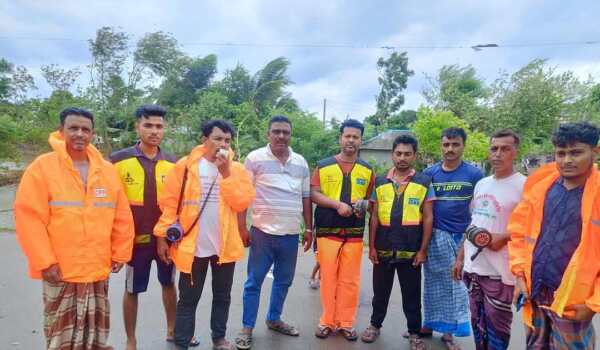Building climate resilience through inclusive humanitarian and development programming

2024 witnessed a rise in extreme weather events, making it the hottest year of the decade, with global temperatures surpassing the pre-industrial average by over 1.5°C. The impact was particularly severe in Bangladesh, Zimbabwe, Madagascar, Kenya, and the Philippines, where cyclones, floods, and the El Niño phenomenon caused widespread devastation, disproportionately affecting people with disabilities and other at-risk groups. To support disaster-affected communities in the above countries, CBM Global adopted a nexus programming approach, which allows us to bridge humanitarian response and development efforts to address immediate humanitarian needs while strengthening long-term resilience and reducing future risks.
In southern Madagascar, in partnership with Action Intercooperation Madagascar (AIM) and regional Plateforme des Personnes Handicapées de Madagascar (PFPH) – Organisation of Persons with Disabilities (OPD), CBM Global applies the nexus programming approach through an integrated programme that strengthens long-term resilience while addressing humanitarian needs. The programme supports communities facing chronic drought and food insecurity by developing Inclusive Climate Field Schools, where people with disabilities and people from other at-risk groups learn climate-smart livelihood practices to adapt to changing environmental conditions. To improve financial resilience, inclusive Village Savings and Loan Associations provide access to savings and credit, enabling participants to invest in their livelihoods. At the household level, direct livelihood support through the Inclusive Graduation Approach helps individuals build sustainable income sources. Recognising the heightened risks during the lean season, the programme also includes multi-purpose cash assistance to prevent negative coping strategies, ensuring that immediate humanitarian needs do not undermine long-term recovery.
“Climate change is no longer a distant threat. It is impacting every aspect of life in southern Madagascar. By integrating climate resilience into inclusive livelihoods, we support communities to adapt in the face of these challenges, ensuring no one is left behind.” – Manohisoa Hariniaina Esmine (Hary), president of FISEMA and a local OPD partnering with CBM Global to implement an inclusive livelihoods project in the south of Madagascar
